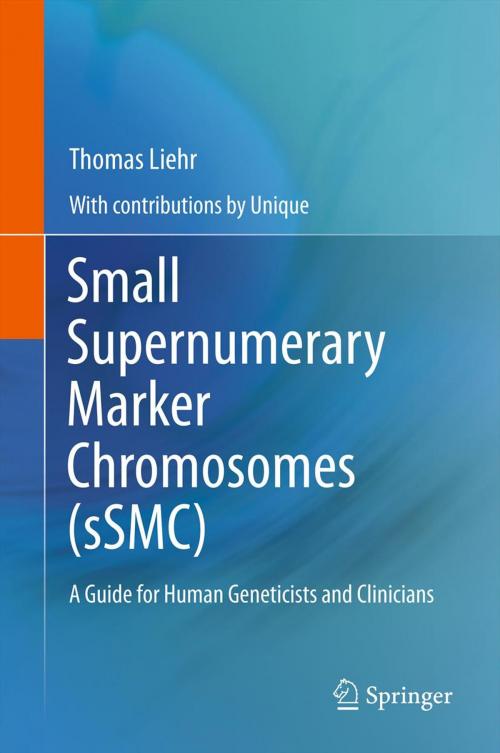Small Supernumerary Marker Chromosomes (sSMC)
A Guide for Human Geneticists and Clinicians
Nonfiction, Health & Well Being, Health, Ailments & Diseases, Genetic, Medical, Medical Science, Genetics| Author: | Thomas Liehr, UNIQUE | ISBN: | 9783642207662 |
| Publisher: | Springer Berlin Heidelberg | Publication: | November 3, 2011 |
| Imprint: | Springer | Language: | English |
| Author: | Thomas Liehr, UNIQUE |
| ISBN: | 9783642207662 |
| Publisher: | Springer Berlin Heidelberg |
| Publication: | November 3, 2011 |
| Imprint: | Springer |
| Language: | English |
Human beings normally have a total of 46 chromosomes, with each chromosome present twice, apart from the X and Y chromosomes in males. Some three million people worldwide, however, have 47 chromosomes: they have a small supernumerary marker chromosome (sSMC) in addition to the 46 normal ones. This sSMC can originate from any one of the 24 human chromosomes and can have different shapes. Approximately one third of sSMC carriers show clinical symptoms, while the remaining two thirds manifest no phenotypic effects.
This guide represents the first book ever published on this topic. It presents the latest research results on sSMC and current knowledge about the genotype-phenotype correlation. The focus is on genetic diagnostics as well as on prenatal and fertility-related genetic counseling. A unique feature is that research meets practice: numerous patient reports complement the clinical aspects and depict the experiences of families living with a family member with an sSMC.
Human beings normally have a total of 46 chromosomes, with each chromosome present twice, apart from the X and Y chromosomes in males. Some three million people worldwide, however, have 47 chromosomes: they have a small supernumerary marker chromosome (sSMC) in addition to the 46 normal ones. This sSMC can originate from any one of the 24 human chromosomes and can have different shapes. Approximately one third of sSMC carriers show clinical symptoms, while the remaining two thirds manifest no phenotypic effects.
This guide represents the first book ever published on this topic. It presents the latest research results on sSMC and current knowledge about the genotype-phenotype correlation. The focus is on genetic diagnostics as well as on prenatal and fertility-related genetic counseling. A unique feature is that research meets practice: numerous patient reports complement the clinical aspects and depict the experiences of families living with a family member with an sSMC.















